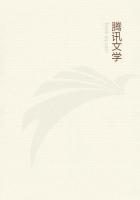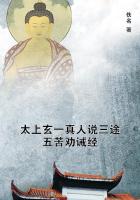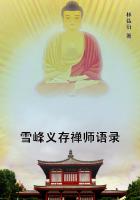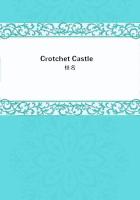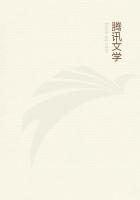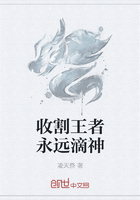OF the parts of animals some are ******: to wit, all such as divide into parts uniform with themselves, as flesh into flesh; others are composite, such as divide into parts not uniform with themselves, as, for instance, the hand does not divide into hands nor the face into faces.
And of such as these, some are called not parts merely, but limbs or members. Such are those parts that, while entire in themselves, have within themselves other diverse parts: as for instance, the head, foot, hand, the arm as a whole, the chest; for these are all in themselves entire parts, and there are other diverse parts belonging to them.
All those parts that do not subdivide into parts uniform with themselves are composed of parts that do so subdivide, for instance, hand is composed of flesh, sinews, and bones. Of animals, some resemble one another in all their parts, while others have parts wherein they differ. Sometimes the parts are identical in form or species, as, for instance, one man's nose or eye resembles another man's nose or eye, flesh flesh, and bone bone; and in like manner with a horse, and with all other animals which we reckon to be of one and the same species: for as the whole is to the whole, so each to each are the parts severally. In other cases the parts are identical, save only for a difference in the way of excess or defect, as is the case in such animals as are of one and the same genus. By 'genus' Imean, for instance, Bird or Fish, for each of these is subject to difference in respect of its genus, and there are many species of fishes and of birds.
Within the limits of genera, most of the parts as a rule exhibit differences through contrast of the property or accident, such as colour and shape, to which they are subject: in that some are more and some in a less degree the subject of the same property or accident; and also in the way of multitude or fewness, magnitude or parvitude, in short in the way of excess or defect. Thus in some the texture of the flesh is soft, in others firm; some have a long bill, others a short one; some have abundance of feathers, others have only a small quantity. It happens further that some have parts that others have not: for instance, some have spurs and others not, some have crests and others not; but as a general rule, most parts and those that go to make up the bulk of the body are either identical with one another, or differ from one another in the way of contrast and of excess and defect. For 'the more' and 'the less' may be represented as 'excess' or 'defect'.
Once again, we may have to do with animals whose parts are neither identical in form nor yet identical save for differences in the way of excess or defect: but they are the same only in the way of analogy, as, for instance, bone is only analogous to fish-bone, nail to hoof, hand to claw, and scale to feather; for what the feather is in a bird, the scale is in a fish.
The parts, then, which animals severally possess are diverse from, or identical with, one another in the fashion above described.
And they are so furthermore in the way of local disposition: for many animals have identical organs that differ in position; for instance, some have teats in the breast, others close to the thighs.
Of the substances that are composed of parts uniform (or homogeneous) with themselves, some are soft and moist, others are dry and solid. The soft and moist are such either absolutely or so long as they are in their natural conditions, as, for instance, blood, serum, lard, suet, marrow, sperm, gall, milk in such as have it flesh and the like; and also, in a different way, the superfluities, as phlegm and the excretions of the belly and the bladder. The dry and solid are such as sinew, skin, vein, hair, bone, gristle, nail, horn (a term which as applied to the part involves an ambiguity, since the whole also by virtue of its form is designated horn), and such parts as present an analogy to these.
Animals differ from one another in their modes of subsistence, in their actions, in their habits, and in their parts. Concerning these differences we shall first speak in broad and general terms, and subsequently we shall treat of the same with close reference to each particular genus.
Differences are manifested in modes of subsistence, in habits, in actions performed. For instance, some animals live in water and others on land. And of those that live in water some do so in one way, and some in another: that is to say, some live and feed in the water, take in and emit water, and cannot live if deprived of water, as is the case with the great majority of fishes; others get their food and spend their days in the water, but do not take in water but air, nor do they bring forth in the water. Many of these creatures are furnished with feet, as the otter, the beaver, and the crocodile; some are furnished with wings, as the diver and the grebe; some are destitute of feet, as the water-snake. Some creatures get their living in the water and cannot exist outside it: but for all that do not take in either air or water, as, for instance, the sea-nettle and the oyster. And of creatures that live in the water some live in the sea, some in rivers, some in lakes, and some in marshes, as the frog and the newt.
Of animals that live on dry land some take in air and emit it, which phenomena are termed 'inhalation' and 'exhalation'; as, for instance, man and all such land animals as are furnished with lungs.
Others, again, do not inhale air, yet live and find their sustenance on dry land; as, for instance, the wasp, the bee, and all other insects. And by 'insects' I mean such creatures as have nicks or notches on their bodies, either on their bellies or on both backs and bellies.
And of land animals many, as has been said, derive their subsistence from the water; but of creatures that live in and inhale water not a single one derives its subsistence from dry land.
Some animals at first live in water, and by and by change their shape and live out of water, as is the case with river worms, for out of these the gadfly develops.

